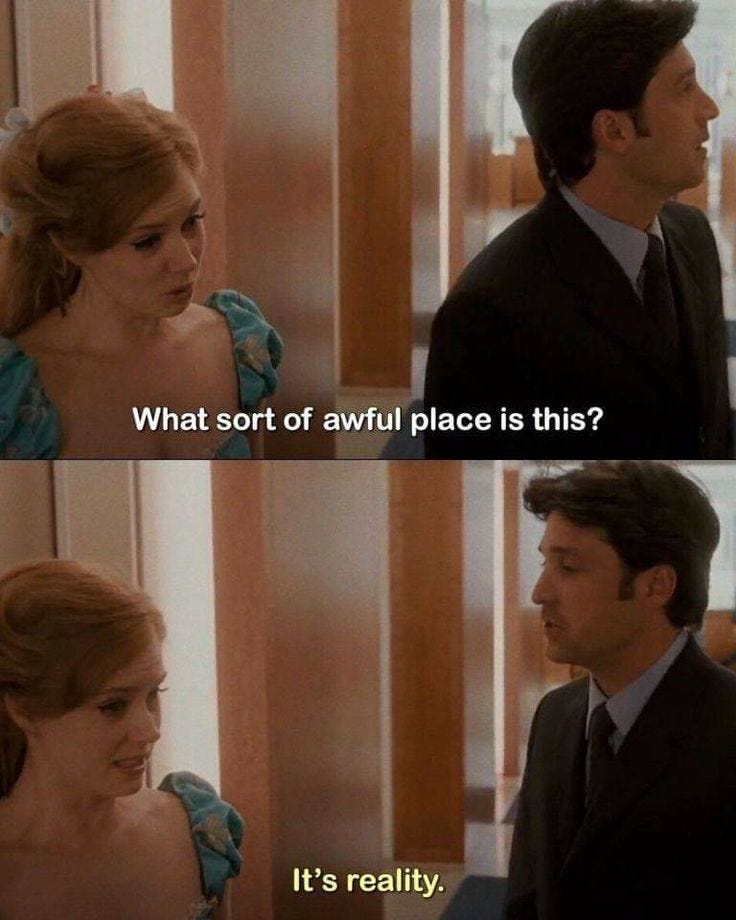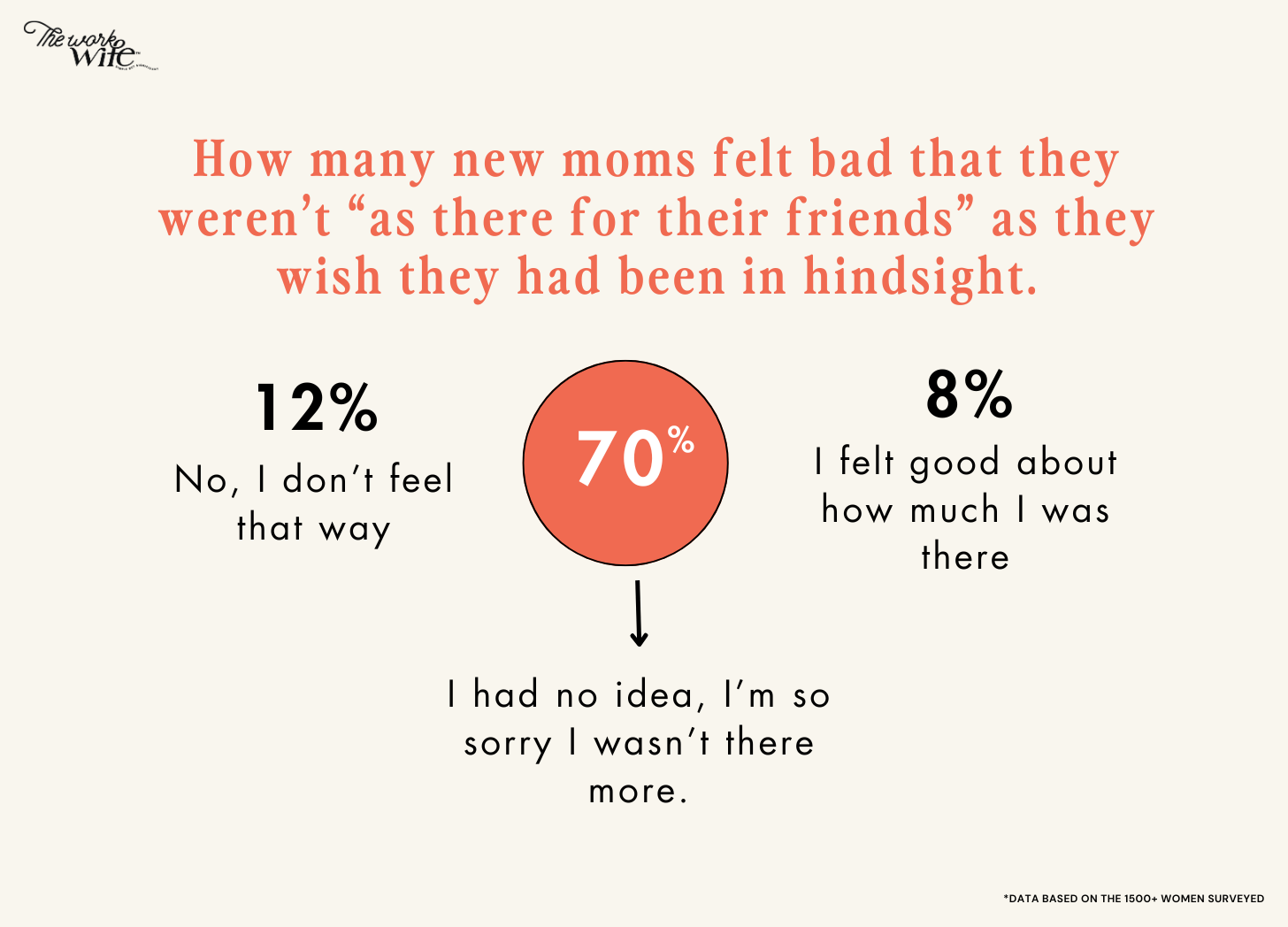This is part 1 of my multi-part series on The Village. Today is exploring friendships as new moms vs single friends and what it looks like from both angles. This series will continue next week to explore the dynamics of paid vs unpaid help, the costs associated, how to manage familiar help, and ways to get more affordable support.
Over the past few weeks, I’ve been having some really important conversations about the topic of “the village” in my DMs.
One message stood out to me:
“I don’t have a village, but I also know that’s because I don’t have time to be in someone else’s village.”
That level of self-awareness? Honestly, I commended her for it.
In this column you’ll find:
👶 The truth about "the village" and why it feels so hard to find
🤱 Why mothers and childfree friends are at odds
🧠 The invisible load & how it changes everything
☕ How to support a new mom (without being a mind-reader)
Can you do me a favor? If you like this, will you hit the heart ❤️ at the bottom of your email? I pinky promise it helps me and will only take you a second!
Everyone Wants a Village—But No One Wants to Be a Villager
A few days ago, my best friend, who is childfree, sent me a TikTok. It was from a very popular Substacker talking about the duality of the village: the idea that everyone wonders where their village is, but fail to mention they didn’t take the time to build one.
She sent it to me with a “This is literally what you’ve been screaming from the rooftops”. And she’s right. I’ve been saying this for years.
But what makes this conversation particularly interesting with me & my best friend is that we’re coming at it from opposite perspectives. I’m a mom to a three-year-old. She’s single and childfree. We’ve been best friends for almost five years: two years before I became a mom, and three years since. We’ve had to actively work on our friendship through major life changes: she’s moved cities, changed her marital status, and started over with a new career. My identity has also changed entirely through motherhood.
And yet, we’ve stayed best friends. And through it all, we keep coming back to the same conversations about friendship, adulthood, and why so many relationships fall apart when one person has a child, and what we did differently.
🤱 Motherhood is a Setup for Loneliness
The reason so many moms feel isolated isn’t just because of the lack of friendship. It’s because the system is designed for us to fail.
Mothers, especially in the United States, are overworked and under-supported. Even those of us with amazing partners - we still feel the brunt of motherhood. In this economy, most families need dual incomes to survive which more of the childcare and running a household is put on moms.
In the US, women spend an average 4.5 hours doing unpaid work per day, compared with 2.8 hours for men, according to data from the Organization for Economic Cooperation and Development. — & that’s WITH involved dads.
The reality is that many new parents experience a deep loss of community. They ask, “Where is my village? Where are the people who are supposed to show up for me? This is *really* freaking hard.”
And simultaneously, single friends are asking, “Where is my friend? They abandoned me when they became a mom.”
And, like most conflict, the answer is in the gray.
🫂 The Moment Everything Changes
No matter how much people tell you what postpartum is going to be like, no matter how many TikToks you watch, books you read, or advice you receive… you don’t actually know how it’s going to be until you’re in it.
🍼 But nothing prepares you for postpartum.
You’re sleep-deprived—like, legitimately experiencing a form of torture.
You’re physically recovering from childbirth. Bleeding for six weeks+. Sore, possibly in pain.
Your body isn’t yours. You are a literal food source, relied on for survival.
Your hormones are shifting in ways that make you cry every single day for weeks.
And no matter how much support you have: whether it’s a night nanny, a hands-on partner, or family staying with you— it is still really hard.
I’m going to equate this to something that might feel far-fetched, but as someone who lost my dad 11 months ago, I can confidently say this: There are so many similarities between grief and postpartum.
You wouldn’t expect someone in the depths of grief to be the one checking in on you, right? You wouldn’t think, “Why hasn’t she asked about how my job is going?” or “Why hasn’t she reached out?” You instinctively give grace. You understand that they are in survival mode.
New moms need that same grace.
And it’s not just the first three months. By the time you finally feel like you’re emerging from the newborn fog, you’re either going back to work, or your baby is hitting a sleep regression, and you’re back to square one. And by then, your support system has often dwindled—family has returned to their normal lives, friends assume you’ve got it figured out, and you’re left in this weird limbo of “Wait, am I supposed to be normal again?”
It’s eerily similar to grief. At first, there’s an outpouring of support. But after a while, people stop checking in— not because they don’t care, but because they assume you’ve adjusted and they’ve moved on with their lives.
Having a child means that there is a new person who is unequivocally the most important thing in your life right now. They literally rely on you for life. So this take presidence, period. If you want your best friend? You know where to find her.
💲 Community ≠ Capitalism
I saw a TikTok recently where a guy was talking about how capitalism thrives on the fact that we don’t have community. That’s why we have Uber instead of asking a friend to take us to the airport. That’s why we have meal delivery services instead of friends bringing us food. That’s why we have postpartum support specialists instead of aunts, cousins, and friends helping us through those early months.
We don’t talk to each other anymore. This hyper independence is actually benefiting capitalism the most.
And then, when we enter a life stage where we desperately need support, we find ourselves looking around, wondering where is everyone?
This is where the conversation gets uncomfortable
So… Where Is Everyone?
We can’t talk about “the village” without asking:
Have you poured into your friendships before you needed them?
Did you disappear into your new relationship, marriage, or pregnancy and stop showing up for your friends long before there was a child?
Did your husband become your one and only BFF?! You guys spend 80 hours a week together, go to farmer’s markets and play pickleball together. You’re #besties
This is the part that people don’t want to hear, but they kind of have to: you can’t expect a village to show up, if you haven’t been an active villager.
And before anyone comes for me… I know this isn’t the case for everyone. There are plenty of women who did show up for their friends pre-baby and still found themselves abandoned. There are also plenty of moms who wanted to stay connected to their friendships, but their friends shared little interest in this new chapter in their lives. And then there are those who physically couldn’t due to postpartum anxiety or depression — that’s a different story.
🍵 You Have to Pick Your Cups
Here’s the truth: you can’t pour into everyone.
My best friend can’t show up every weekend to chase a three-year-old around the house for seven different friends. She is single and needs prioritize meeting people. She has but 52 Saturdays in the year. But she can do it for the two or three friends closest to her. Because it brings her joy, not out of obligation.
And the same goes for me. I don’t have the bandwidth to call seven friends and check in on every detail of their lives. But I can do it for two or three.
And that’s the real takeaway here.
Seasons of life require agility. The friendships that survive these shifts aren’t the ones where you try to pour into everyone. They’re the ones where you intentionally pour into the right ones.
Because the truth is, the village can exist.
But only if you’ve been a villager all along.
🤱How to support a new mom
The number one comment under the video about new moms vs. single friends was “they just want a free babysitter” — I can’t tell you ONE friend who wants someone to babysit their kids. Most of my friends won’t even let their parents babysit. Trust me, that’s not what we want. You just didn’t care enough to ask.
You don’t have to dig through the trenches with a friend, but you can sit beside them. You can FaceTime them. You can check in. You can let them know they aren’t alone, even if you aren’t physically there.
Because let’s be real—even if you do live in the same city, schedules don’t always align. Being a long-distance support system is just as important as showing up in person.
If you take nothing else from this column, let it be this:
The full explanation is exclusive for paid subscribers! Friendly reminder that a paid subscription costs less than a latte once a month. If this weekly column brings you joy, I appreciate you supporting my work & to unlock the rest of this post.











